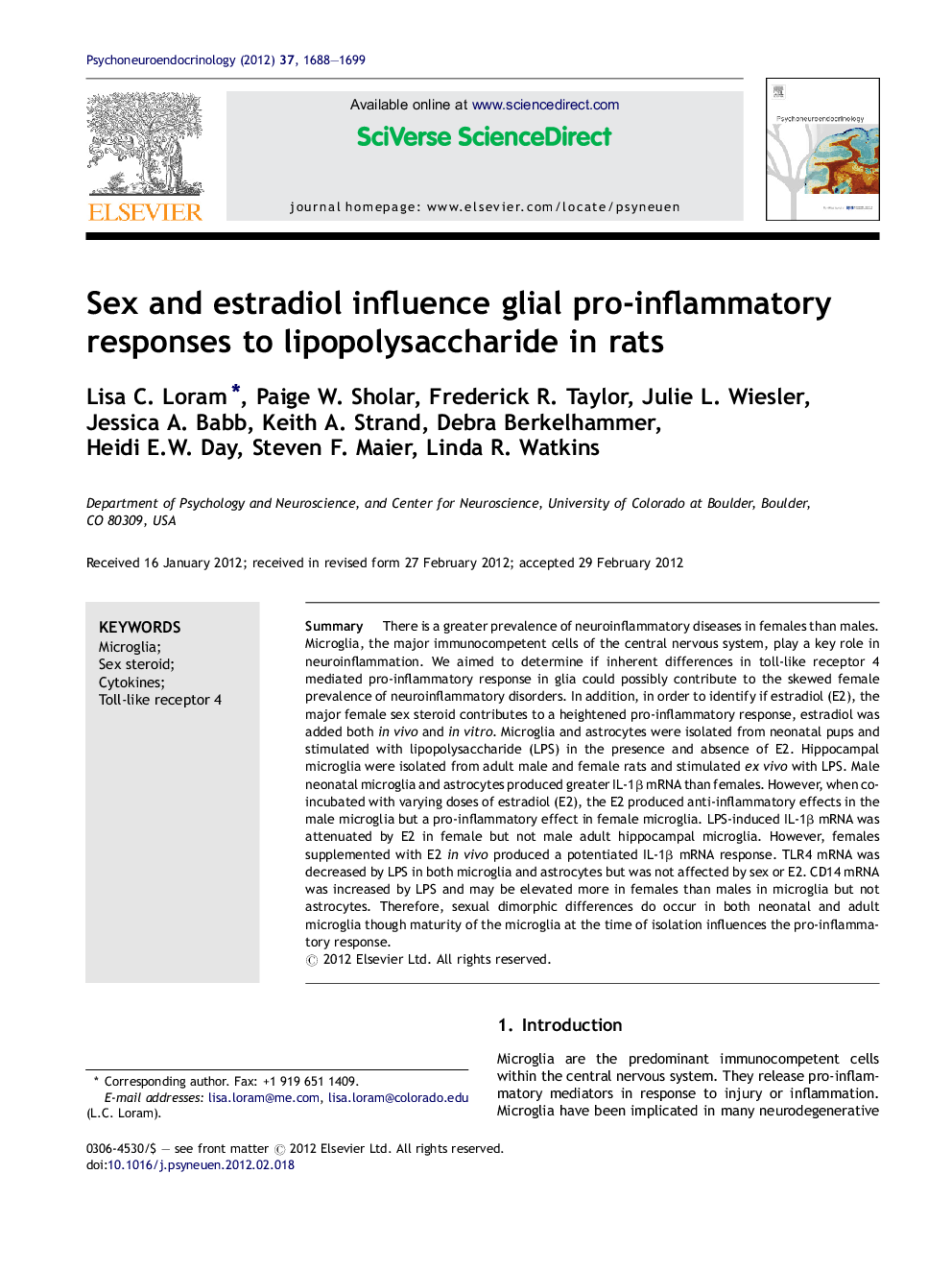| کد مقاله | کد نشریه | سال انتشار | مقاله انگلیسی | نسخه تمام متن |
|---|---|---|---|---|
| 10306855 | 547514 | 2012 | 12 صفحه PDF | دانلود رایگان |
عنوان انگلیسی مقاله ISI
Sex and estradiol influence glial pro-inflammatory responses to lipopolysaccharide in rats
دانلود مقاله + سفارش ترجمه
دانلود مقاله ISI انگلیسی
رایگان برای ایرانیان
کلمات کلیدی
موضوعات مرتبط
علوم زیستی و بیوفناوری
بیوشیمی، ژنتیک و زیست شناسی مولکولی
علوم غدد
پیش نمایش صفحه اول مقاله

چکیده انگلیسی
There is a greater prevalence of neuroinflammatory diseases in females than males. Microglia, the major immunocompetent cells of the central nervous system, play a key role in neuroinflammation. We aimed to determine if inherent differences in toll-like receptor 4 mediated pro-inflammatory response in glia could possibly contribute to the skewed female prevalence of neuroinflammatory disorders. In addition, in order to identify if estradiol (E2), the major female sex steroid contributes to a heightened pro-inflammatory response, estradiol was added both in vivo and in vitro. Microglia and astrocytes were isolated from neonatal pups and stimulated with lipopolysaccharide (LPS) in the presence and absence of E2. Hippocampal microglia were isolated from adult male and female rats and stimulated ex vivo with LPS. Male neonatal microglia and astrocytes produced greater IL-1β mRNA than females. However, when co-incubated with varying doses of estradiol (E2), the E2 produced anti-inflammatory effects in the male microglia but a pro-inflammatory effect in female microglia. LPS-induced IL-1β mRNA was attenuated by E2 in female but not male adult hippocampal microglia. However, females supplemented with E2 in vivo produced a potentiated IL-1β mRNA response. TLR4 mRNA was decreased by LPS in both microglia and astrocytes but was not affected by sex or E2. CD14 mRNA was increased by LPS and may be elevated more in females than males in microglia but not astrocytes. Therefore, sexual dimorphic differences do occur in both neonatal and adult microglia though maturity of the microglia at the time of isolation influences the pro-inflammatory response.
ناشر
Database: Elsevier - ScienceDirect (ساینس دایرکت)
Journal: Psychoneuroendocrinology - Volume 37, Issue 10, October 2012, Pages 1688-1699
Journal: Psychoneuroendocrinology - Volume 37, Issue 10, October 2012, Pages 1688-1699
نویسندگان
Lisa C. Loram, Paige W. Sholar, Frederick R. Taylor, Julie L. Wiesler, Jessica A. Babb, Keith A. Strand, Debra Berkelhammer, Heidi E.W. Day, Steven F. Maier, Linda R. Watkins,